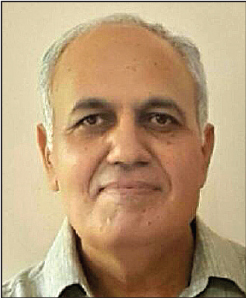
Thermal electricity is a major component of the Indian energy mix. It accounts for approximately 55 per cent of the total installed capacity and 70 per cent of the energy demand. The state discoms are availing of this power from public and private sector generators, as per the terms and conditions contained in the 25-year long-term power purchase agreements (PPAs) between generating entities and purchasing companies. These long-term PPAs enjoy legal and administrative protection. There is a rising trend in the cost of thermal power, mainly due to the price of coal, coal freight, and the expenditure on emission control. A 1 paise per unit increase or decrease in the purchase cost of thermal power annually amounts to approximately Rs 10 billion. The tariff of these generators is based on certain attributes such as market competition, cost of capital, and return on equity (RoE). The present cost of thermal power, including interstate transmission charges at the states’ grid periphery, is nearly Rs 4.50 per unit.
In the past few years, there has been a worldwide emphasis on research and development to harness green power (solar, wind, etc.) and to control carbon emissions. Coal-based generators are facing competition from renewables. There is a huge potential for harnessing solar and wind power in India, and it is available in bulk at a cost of Rs 2-Rs 2.70 per unit approximately. Solar-Wind hybrids with battery storage power are expected to be available in the near future at a price below Rs 4 per unit at states’ grid periphery. However, discoms are not able to optimise their power purchase cost owing to limitations of long-term thermal PPAs and rising costs. End consumers are thus deprived of the advantage of the otherwise cost de-escalating energy market. Long-term PPAs are sacrosanct and therefore have to be honoured. But they must be reviewed in respect of aspects that do not protect the interest of stakeholders and that have, with the passage of time become inconsistent with the actual regime. Rationalising tariffs is the objective of the Electricity Act, 2003, which enables a periodic review and revision of tariff policy. The timing of the thermal power cost review is very apt and it is suggested that the following factors impacting its cost and the retail tariff at the consumer end be reviewed and revised.
Return on equity
For tariff determination for generators and transmission service providers, it is allowed at the rate of 15.5 per cent, which was relevant at the time when interest rates were very high and the power market was not so competitive. At present, it is a low-interest regime and the cost of capital/interest rates is falling. The RoE may, therefore, be reasonably reduced. If it is reduced to 12 per cent, the retail tariff at the consumer end is estimated to fall by approximately 7 paise per unit.
Cost of fuel
The cost of coal contributes approximately 25 per cent to thermal power cost and railway freight accounts for approximately 40 per cent of the coal cost. The railway freight for coal transportation needs to be reviewed by looking into the attributes and methodology being adopted by the railways for freight determination. The quantity and quality (calorific value) of coal should be monitored by an independent third party, including a representative from the power purchaser. Approximately 35 kCal per kg saving in gross calorific value will translate into a reduction in energy charges by 1 per cent.
Late payment surcharge
The financially ailing discoms are often not able to make their payments to generators within the scheduled time and the delayed payment attracts late payment surcharge as high as 18 per cent. It is very high and unfair to charge at a rate higher than the interest actually allowed in the tariff on the working capital.
Reimbursement of income tax applicable on the return on equity
There are generating companies that are allowed to recover the income tax payable by them on the RoE, which is unfair.
Clean energy cess (GST compensation)
It is suggested to discontinue charging this cess at Rs 400 per tonne of coal in view of the mandate for compliance with environmental norms.
Decommissioning of high-cost capacities
Cost-prohibitive, inefficient plants may be decommissioned and an equivalent capacity of hybrid renewable plants with battery storage may be commissioned. The cost of unused life of the decommissioned capacity may be loaded on the hybrid renewable plant. The loaded price may be approximately 15-20 paise per unit, the overall cost of equivalent hybrid renewable power remaining below Rs 4 per unit. Electricity is now being traded in the market like any other commodity and the price of long-term contracted thermal power needs to be regulated and aligned with the price of untied thermal power, available through the energy exchange. It is the most appropriate time to review and revise the guiding parameters for price determination, and contain the rising trend of tariffs for thermal plants.
